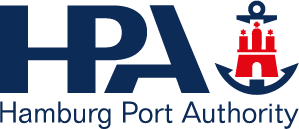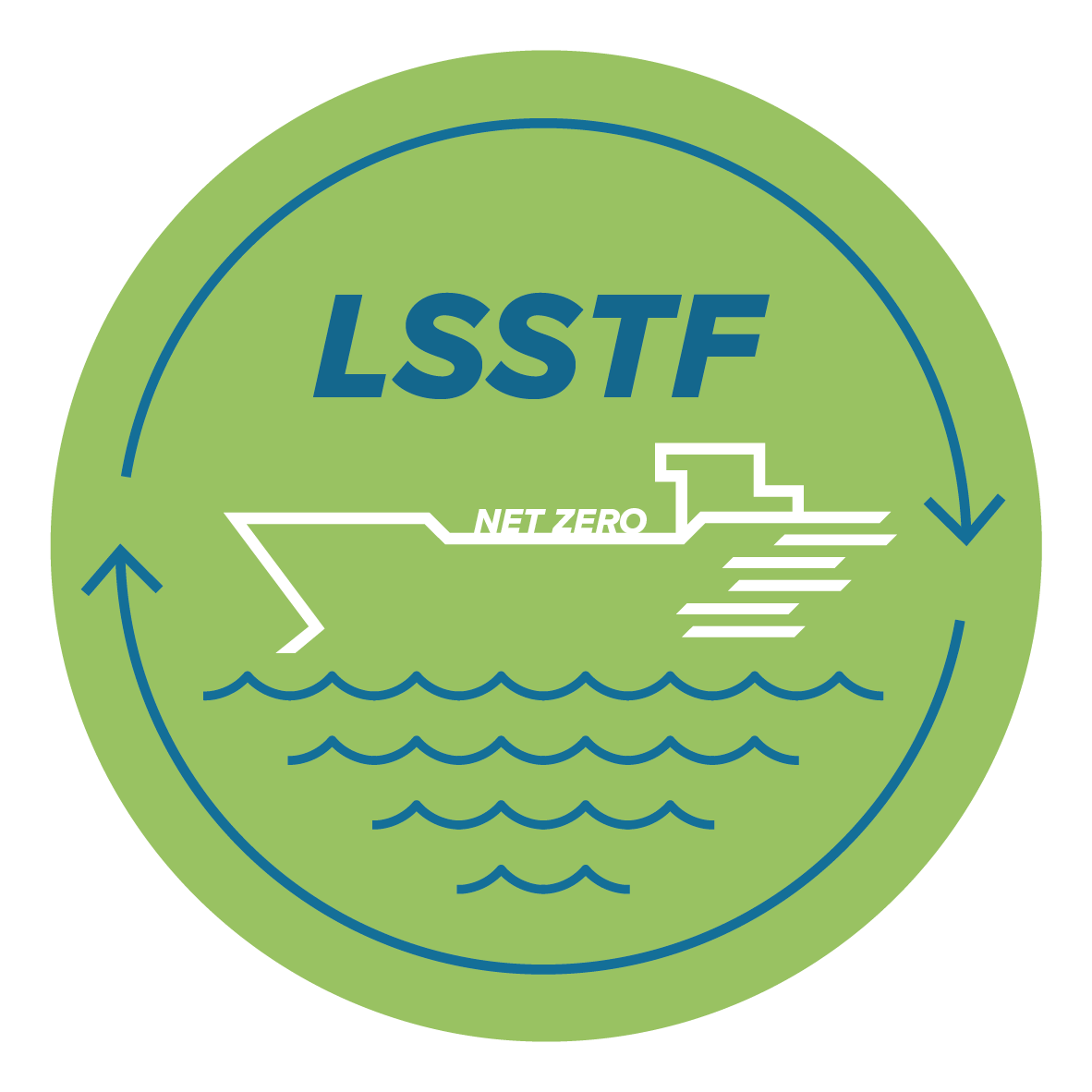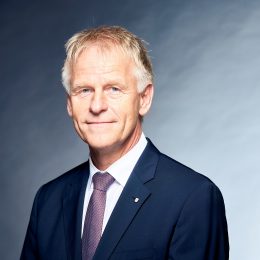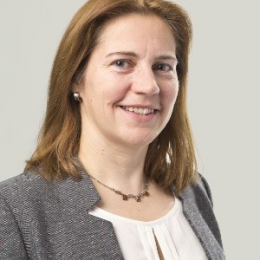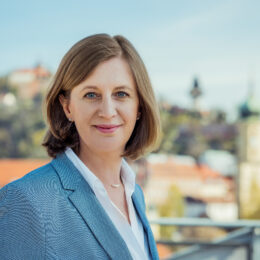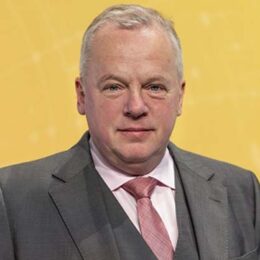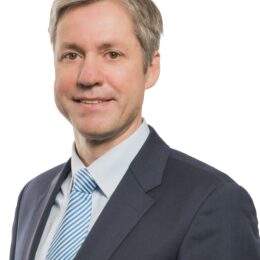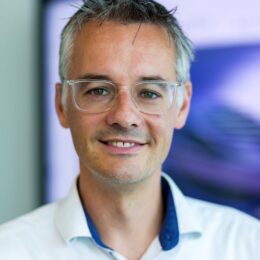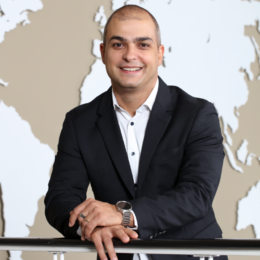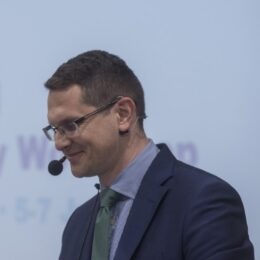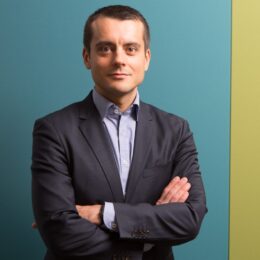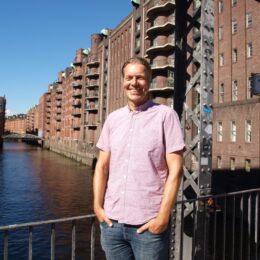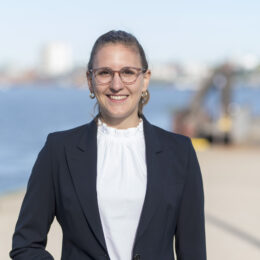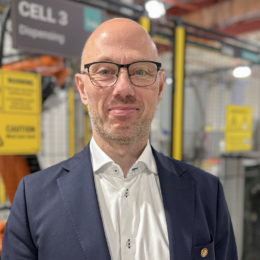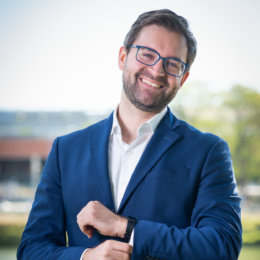Wednesday, June 19, 13:00-17:30
Welcome & Opening
Welcome & Opening
HPA Hamburg Port Authority
Graz University of Technology & LEC Large Engines Competence Center
Hamburg Senator for Economy and Innovation
Styrian Minister for Economy, Tourism, Regions, Science and Research
Moderation
Opening of the fifth LSSTF by the forum organisers HPA and LEC, represented by HPA CEO Jens Meier and LEC CSO Nicole Wermuth.
Welcome speeches from government representatives by Hamburg Senator for for Economy and Innovation, Melanie Leonhard, and the Styrian Minister for Economy, Tourism, Regions, Science and Research, Barbara Eibinger-Miedl.
The forum is moderated by Ulrich Walter.
Session I: Green fuels, logistics and applications
Green Fuel Logistics - from production to the ships
Fraunhofer Center for Maritime Logistics and Services
The global shipping industry is facing major challenges to reduce its CO2 emissions by switching to renewable energy sources. Ships, ports and logistics chains are closely interlinked globally, so only those green fuels wills prevail, that can be used on board, stored and handled in port and are available in sufficient quantities in the shipping area. Prof. Jahn presents the most important developments in the field of green fuels, new technologies and logistics infrastructures and gives an outlook on future challenges and opportunities, also with a view to the Port of Hamburg.
Sustainable Energy Hub Hamburg
Hamburg Port Authority
The presentation introduces the “Sustainable Energy Hub Hamburg (SEH)” initiative in the Port of Hamburg. The aim of this initiative is to create an ecosystem that facilitates collaboration within the port. SEH adopts a comprehensive approach to developing the entire hydrogen value chain in the port area, encompassing research and development of sustainable technologies, fuel production, import, storage, distribution, and large-scale use in industry, transport, and mobility. Companies operating in the field of sustainable energy are part of the cluster. This includes not only storage, processing, and refinement but also suppliers and service providers.
Sustainable fuels for ship propulsion
Graz University of Technology & LEC Large Engines Competence Center
The IMO set the goal to achieve net-zero greenhouse gas emissions from shipping by 2050. Reaching this ambitious target requires a combination of different measures. The internal combustion engine will still play an important role in the future and the transition from fossil fuels to sustainable fuels will be essential. In this presentation opportunities and challenges of “green” fuel options will be discussed, the current state of the research presented and future research and development needs will be highlighted.
Q&A
15:00-15:30 Coffee break
Moderated panel discussion
Decarbonization in sight: potential risks for climate and environment (Impulse speech)
NABU - Naturschutzbund Deutschland e.V.
A climate friendly maritime industry is at sight! There are many options available for eliminating almost all greenhouse gas emissions and major air pollutants as well. Now it is time to accelerate, but likewise not to overlook possible downsides. Among the solutions there are options where environmental risks and emissions have to be taken in to account. Regulation and technical solutions have to be developed to keep up with the speed needed to avoid misleading developments or unintended negative impacts.
Panel discussion
NABU Hamburg
ZBT
Meyer Werft GmbH & Co. KG
WinGD
Dalian University of Technology
17:00 Closing of Day 1
Exclusive Evening Event for our speakers
Harbour tour
Exclusive tour of the Port of Hamburg for all speakers, guided by Daniel Jahn, HPA
Thursday, June 20, 9:00-15:30
Session II: Sustainability drivers in maritime and inland shipping
WinGD 2-Stroke Engines: Pioneering Future Technologies with Gas, Ammonia, and Methanol
WinGD
The presentation will focus on the developments around the decarbonization technologies in WinGD and show updates on the WinGD testing capabilities for future fuels.
Greening of inland and coastal ships: findings from the Innovation Action SYNERGETICS
Development Centre for Ship Technology and Transport Systems (DST e. V.)
The presentation addresses the current state of greening of inland and coastal shipping based on the main findings of the Innovation Action SYNERGETICS (Synergies for Green Transformation of Inland and Coastal Shipping) in course of the first year of the project.
The research on the combustion characteristics of low-carbon and zero-carbon fuel marine engines
Dalian University of Technology
The Marine Engine Research Group of Dalian University of Technology (DUT) has conducted a number of nationally funded research projects on low-carbon and zero-carbon marine engines since 2010. In collaboration with Chinese shipping industry, DUT has led or participated in a number of key projects on natural gas, hydrogen, methanol and ammonia engines. Research activities and outcomes from these projects will be presented in the session.
Q&A
10:30-11:00 Coffee break
Session III: Green & Smart Ports
Clean Fuels Hub in the Port of Hamburg
Mabanaft
NH3 New Energy Gate project Hamburg
Future Methanol bunkering in Hamburg
Hydrogen as bunker fuel
Innovation in the Port of Hamburg - insights to three projects
Hamburg Port Authority
To explain how the research and innovation process at the HPA, works Ulrich will give three examples of innovation projects at the HPA. He will touch on the fields of water drones, flying drones, robots and artificial intelligence. In his presentation he shows concrete use cases and their technical solutions.
Flotte Hamburg - The urban fleet from green to zero emission
Flotte Hamburg GmbH & Co. KG
The Hamburg Fleet operates about 45 ships for the use around the Port of Hamburg, including typical “working ships” (small tug boats, etc.), as well as pilot boats, police boats and fire boats. The consolidation of these different ship categories is a unique project of the City of Hamburg in Germany.
With Port of Hamburg located in the city center, environmental friendliness is a highly important issue. In the past six years the Hamburg Fleet has been taking a pioneering role in local emission reduction and is engaged to lead by example.
As of 2023 the advanced focus is on carbon emission reduction. The new strategy was developed with experts and will be introduced in the presentation together with the underlying concept for an environmental-friendly operation of the fleet.
Q&A
12:30-13:30 Lunch break
Session IV: Onboard fuel processing, carbon capture and energy storage
Onboard Carbon Capture – Concept Analyses of Selected Use Cases
LEC GmbH
Based on a general overview of decarbonization concepts in maritime shipping, this presentation will specifically focus on onboard carbon capture systems. The system simulation framework LEC ENERsim was used to evaluate the application of different carbon capture technologies on a techno-economic basis. By means of selected use cases (e.g., container ship, cruise ship), the technologies will be compared with each other, their advantages and disadvantages discussed and the most promising technology paths identified.
Driving innovation in zero emission shipping
Corvus Energy
Founded in 2009, Corvus Energy is the leading supplier of energy storage solutions and fuel cell systems for maritime, offshore and port applications.
This presentation explains how the company is driving innovation and achieving important milestones and pioneering work in the decarbonization of shipping. It also highlights some of the opportunities and challenges for the future.
Onboard ammonia cracking based on integrated membrane reactors
H2SITE
H2SITE develops on-board ammonia cracking solutions incorporating integrated membrane reactors, which may be key to the decarbonization as they provided the highest overall efficiency of any fuel-to-power solution. Ammonia-to-hydrogen cracking technology aims to enhance the use of hydrogen on board vessels by improving fuel density. Instead of storing hydrogen directly, ammonia is bunkered and then cracked into hydrogen, maximizing efficiency and minimizing emissions. This allows ammonia to be used efficiently and flexibly for internal combustion engine and fuel cell applications.
Q&A

